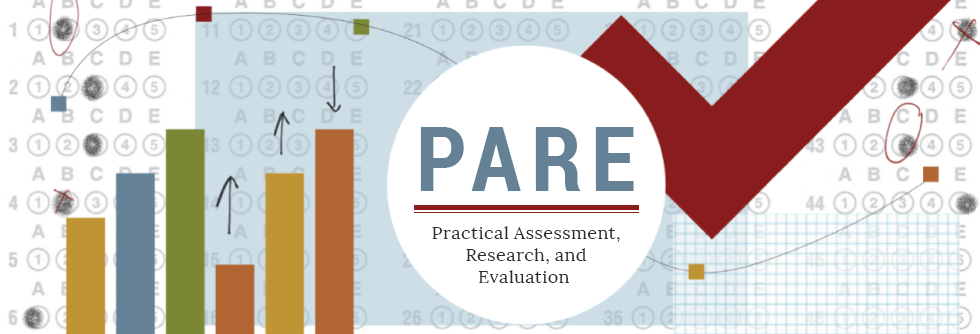The Reliability, Validity, and Utility of Self-Assessment
DOI
https://doi.org/10.7275/9wph-vv65
Abstract
Despite widespread use of self-assessment, teachers have doubts about the value and accuracy of the technique. This article reviews research evidence on student self-assessment, finding that (1) self-assessment produces consistent results across items, tasks, and short time periods; (2) self-assessment provides information about student achievement that corresponds only in part to the information generated by teacher assessments; (3) self-assessment contributes to higher student achievement and improved behavior. The central finding of this review is that (4) the strengths of self-assessment can be enhanced through training students how to assess their work and each of the weaknesses of the approach (including inflation of grades) can be reduced through teacher action. Accessed 50,962 times on https://pareonline.net from November 17, 2006 to December 31, 2019. For downloads from January 1, 2020 forward, please click on the PlumX Metrics link to the right.
Creative Commons License

This work is licensed under a Creative Commons Attribution-NonCommercial-No Derivative Works 4.0 International License.
Recommended Citation
Ross, John A.
(2019)
"The Reliability, Validity, and Utility of Self-Assessment,"
Practical Assessment, Research, and Evaluation: Vol. 11, Article 10.
DOI: https://doi.org/10.7275/9wph-vv65
Available at:
https://scholarworks.umass.edu/pare/vol11/iss1/10
